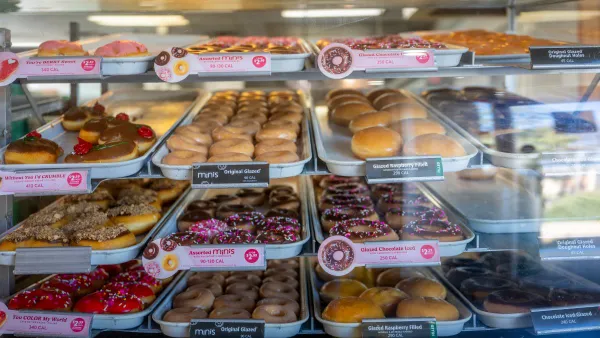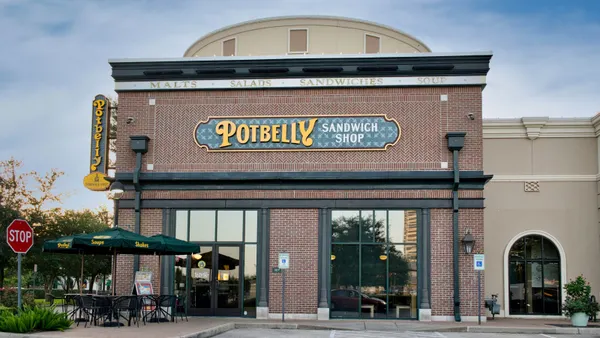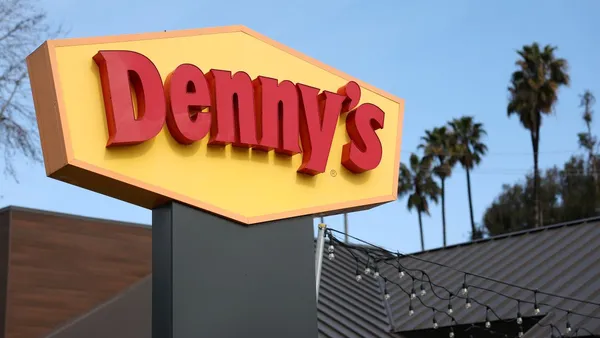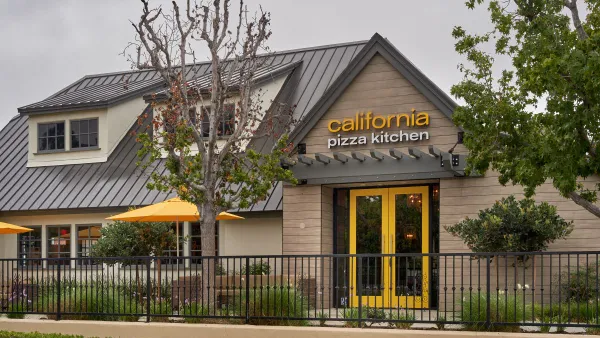Dive Brief:
- Nearly three months after Outback restaurant chain sought interest in its Brazil business, Bloomin' Brands has selected three bidders as potential buyers, according to Reuters. They include private equity firm Advent International, local investment firm Vinci Partners (which owns a stake in Burger King Brasil) and local QSR chain Madero.
- Brazil's Outback operation could be worth about $472 million. There are currently about 100 Outback Steakhouse restaurants in Brazil. Valor Econômico reported in December that negotiations include the Abraccio chain and one unit of Fleming's Steakhouse in addition to the Outback units.
- This comes on the heels of Bloomin' Brands' November announcement that it is exploring strategic alternatives, noting that its stock price doesn't reflect the value of the company. The decision followed pressure from activist investor Jana Partners to sell or break up the company.
Dive Insight:
Last year, Bloomin’ Brands CEO Dave Deno said the Brazil market has the potential to support another 50 Outback locations. The parent company has invested millions in the chain for restaurant renovations, delivery and a customer loyalty program.
Despite these investments, Valor Econômico reports that sales and traffic fell in 2018 with margins under pressure by high operational costs. Profit margin before EBITDA was 7.9% in 2018. One source told the publication that the brand is popular, "with lines out the door," but that it could make more money than it does.
That is especially true considering the company's investment in and focus on the market. In 2017, for example, Outback yielded a 13% increase in sales in Brazil, which was a relatively new market at the time for the brand. Because of this positive response, Bloomin' continued to pour time and resources into the market, but sales dropped 3% in 2018, according to the Valor Econômico story.
International growth makes plenty of sense for casual dining brands that have struggled to regain their domestic footing since the recession. However, and perhaps ironically, Outback's challenges in Brazil could have something to do with that country's shaky economy. In 2015, the country's GDP fell by nearly 3.8% and fell again by 3.6% in 2016. The country's recession ended by 2017, but its economy show shrinkage last year. As we've seen in the U.S., it's not easy for casual, sit-down concepts to recover from such a downturn.
Things started to turnaround in 2019 for Outback Brazil, though, with comp sales rising 11.2% during Q3 and up 6.1% during the first nine months of the year. That compared to a 3.3% decline in comp sales during the year-ago quarter and a 2.8% decline during the previous year's first nine months. This growth could make it even more attractive to a potential seller, especially if the year ended well.
If Bloomin' is going to recapture the optimism it had just five years ago for the Outback brand in Brazil, divesting to a local operator familiar with the environment could be a savvy strategic plan.








